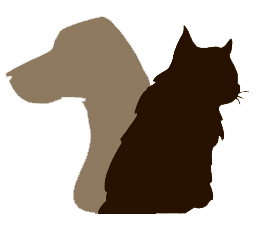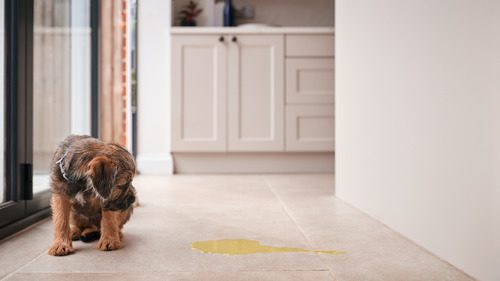Is it Normal That My Dog is Snoring?
Dogs snoring can be adorable, but it can also raise concerns for pet owners. If you’re wondering, “Is it normal that my dog is snoring?” you’re not alone. Many pet owners worry about whether their dog’s snoring is a sign of something more serious. In this blog, we’ll explore why dogs snore, when you should be concerned, and what you can do to help your furry friend. If you have concerns about your dog’s snoring, please call Mendocino Animal Hospital at (707) 462-8833 or book an appointment online.

What Causes Snoring in Dogs?
Several factors can cause your dog to snore. The most common reasons include the anatomy of the dog’s airway, obesity, sleeping position, and environmental factors. Dogs with shorter snouts, such as Bulldogs, Pugs, and Boxers, are more prone to snoring because of their brachycephalic airway syndrome. Obesity can also contribute to snoring, as extra weight can put pressure on the airway. Sometimes, a dog’s sleeping position can cause temporary snoring. Environmental factors like dust, smoke, and allergens can irritate your dog’s airway, leading to snoring.
Health Issues Leading to Snoring
While occasional snoring is usually harmless, persistent snoring can indicate underlying health issues. Conditions such as respiratory infections, allergies, nasal obstructions, and even sleep apnea can cause snoring in dogs. If your dog’s snoring is accompanied by other symptoms like coughing, sneezing, difficulty breathing, or changes in sleep patterns, it’s essential to consult a veterinarian.
Signs That Snoring May Be a Problem
Not all snoring is created equal. If your dog’s snoring is loud, continuous, or comes with other concerning symptoms, it may be time to take action. Watch for signs like gasping for air, choking sounds, restlessness, and a decrease in overall energy levels. These symptoms can indicate more severe conditions that require veterinary attention. Persistent snoring that disrupts your dog’s sleep or leads to daytime fatigue is also a red flag.
Potential Health Risks
Chronic snoring can lead to more serious health problems. For instance, sleep apnea, if left untreated, can cause significant strain on a dog’s cardiovascular system. Nasal obstructions or infections can worsen over time, leading to chronic discomfort and potential complications. Addressing these issues promptly can prevent more severe health risks and improve your dog’s quality of life.
How to Help Your Snoring Dog
Lifestyle Changes
Making simple lifestyle changes can help reduce your dog’s snoring. Ensuring your dog maintains a healthy weight is crucial, as obesity is a common cause of snoring. Regular exercise and a balanced diet can help your dog stay fit. Additionally, providing a clean sleeping environment free from dust and allergens can minimize irritation in your dog’s airway. You might also consider changing your dog’s sleeping position by providing a different bed or pillow that encourages better airflow.
Veterinary Interventions
If lifestyle changes don’t alleviate your dog’s snoring, it may be time to seek veterinary intervention. A thorough examination by a veterinarian can help identify any underlying medical conditions contributing to the snoring. Depending on the diagnosis, treatments can range from medications to manage allergies or infections to surgical interventions for more severe anatomical issues. For example, brachycephalic dogs may benefit from surgery to widen their nostrils or shorten their soft palate.
Breeds Prone to Snoring
Brachycephalic Breeds
Certain dog breeds are more prone to snoring due to their anatomical structure. Brachycephalic breeds like Bulldogs, Pugs, and Shih Tzus have shorter snouts and narrower airways, making them more susceptible to snoring. These breeds often require extra care and monitoring to ensure their respiratory health. Owners of brachycephalic dogs should be particularly vigilant about any changes in their pet’s breathing patterns and seek veterinary advice when necessary.
Larger Breeds
Larger dog breeds, such as Saint Bernards and Newfoundlands, can also be prone to snoring. Their size and the structure of their throats can contribute to airway obstructions, leading to snoring. Ensuring these dogs maintain a healthy weight and receive regular veterinary check-ups can help manage and reduce snoring.
Managing Your Dog’s Snoring for a Healthier Life
Dog snoring can range from a harmless quirk to a sign of a more serious health issue. Understanding the causes and knowing when to seek help can ensure your dog remains healthy and happy. If your dog’s snoring is persistent or accompanied by other symptoms, reach out to Mendocino Animal Hospital at (707) 462-8833 or book an appointment online. Our team is here to help you and your pet enjoy a peaceful, restful night’s sleep.
Recent Posts
Dog UTI Symptoms
Urinary tract infections (UTIs) can affect dogs of any age, breed, or size—and when they do, it…
Ear Mites in Cats
If your cat has been shaking their head, scratching around their ears, or showing signs of discomfort,…
Can Dogs Have Cheese?
Many pet owners enjoy sharing small bites of their favorite snacks with their dogs—especially something as tempting…
What Do Dogs Dream About?
Have you ever watched your dog sleeping—legs twitching, nose wriggling, tail flicking—and wondered what’s going on in…
8 Tips for Cat Proofing Your Christmas Tree
As the holiday season approaches, many pet owners look forward to decorating their homes with festive cheer….
About Mendocino Animal Hospital
At Mendocino Animal Hospital, we believe in fostering the human-animal bond with excellent veterinary medicine. Our full-service veterinary practice operates in Ukiah, CA with a team of skilled veterinarians and a passionate, talented support staff who make you feel like a part of the family.
As an AAHA-accredited animal hospital, every service and aspect of our practice meets AAHA’s Standards of Excellence. No matter what your pet comes in for, they’ll receive only the best in care, compassion, and service.





